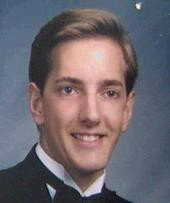But... how is the suggested easing of the instigator suspension rule going to truly prevent the game's stars from harm if their guards are still suspended in some way by protecting them?
The 30 Dark Lords of the NHL debated this issue down in Florida this week among several others, and a consensus was reached that a two-game suspension should only come after a player has accumulated five, not the original three, instigator penalties.
Just from the logic of the above rule amendment, the league is STILL not fully protecting their superstars. A suspension is a suspension however you slice it, and if a given team has only one designated "enforcer" on their roster, he basically has only five chances outside the rules to protect his teammate before losing two games to do so effectively. The ramifications are worse if a second-line goal scorer with a mean-streak takes matters into his own hands and sacrifices a pair of games since he's the only man for the job. Chances are there will be a point (maybe several if this player is brutally effective) during the season where your 50-goal player is left unprotected while flitting across the ice - during which opposing bruisers will lick their chops and size up their prey for The Big Hit.
The bridge to cross on the issue is far off, to be sure, but the resulting questions are relevant: Can the coach trust the role to a less-engaging skater? Can he trust the role to an excessively-exuberant AHL player looking to take a permanent roster spot? Does he do nothing and hope the honor system works?
I believe all forms of instigator penalty, save for a situation when one player clearly attacks another and engages in a fight without provocation or consent (such as when a 6'4, 230-pound Saskatchewan-bred fourth-liner decides to pummel a 5'10, 180-pound Swede or Finn just because he's there) should be abolished. Even if a player who is grabbed and pulled into a fight eventually sticks up for himself, no extra penalty should be called on the aggressor because his own defense constitutes consent to engage. Same should go for a fighter who engages another player due to a hit the latter put on the former's more skilled teammate - the fact that both men clinch and throw punches means consent to the action under The Code - and besides, the latter player knows a challenge is coming due to his recognition of The Code as well.
However, it's pretty clear that an old-school fan and student of the game like myself won't see those plans come to fruition, but short of that, let's get rid of the suspension for multiple instigators altogether. You want to send a message that a player can't get out of control? Give out a ten-minute misconduct for every two instigators a player receives in one game. A player accumulates five? An automatic game-misconduct. There's a lot of breathing room between no infraction at all and a multi-game suspension.
At worst, if a player receives a two-game suspension for headhunting say, Sid Crosby, how will it affect that player's role if all he's thinking about for three or more days is getting revenge? Even in this day and age of the supposedly more genteel NHL, a suspended player isn't going to sit in a darkened corner and think about what he did - he's going to spend his time plotting revenge beyond the referee's gaze - and that can only lead to more trouble down the road.
Thursday, February 22, 2007
Subscribe to:
Post Comments (Atom)

No comments:
Post a Comment